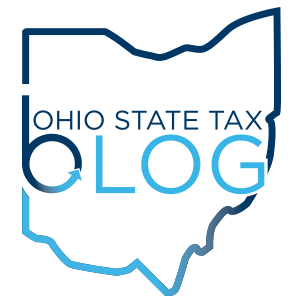Ohio bills seek to repeal law giving cities flexibility for remote worker withholdings
In the wake of the Covid-19 pandemic, the Ohio General Assembly passed H.B. 197 to provide tax relief to Ohio citizens through deadline extensions and flexible tax policy. One provision gave employers flexibility to withhold income taxes as if employees were still working at the office, even if they were working remotely in a different municipality. The law essentially provides administrative relief to employers by treating compensation while working from home due to Covid-19 as still earned at the employee’s historic principle place of work. Accordingly, the employer is not required to withhold tax for every jurisdiction where their employees reside when required to work from home due to the pandemic. It also does not make the employer liable for the municipality’s net profits tax based solely upon the employees’ services from home. Now, lawmakers are challenging this provision as unconstitutional, asserting that municipalities should not be allowed to tax income earned outside their borders. If the flexible provision is repealed, it would significantly increase the burden of complying with each municipality’s withholding and net profits tax requirements.
The new bills, S.B. 352 and H.B. 754, seek to repeal the temporary rule for remote workers. Additionally, The Buckeye Institute and others filed suit alleging that HB 197 is unconstitutional because “there is neither nexus nor fiscal relation between the city and the income being taxed.” In other words, employers should be required to withhold tax where the employees’ services are being performed (in their home municipality). However, Ohio cities assert that the law allows employers to “maintain the status quo” as if the pandemic had not occurred. Moreover, cities that rely on commuters for income tax revenue could see a significant drop in revenue should the law be repealed. Of course, mayors from Ohio’s larger cities vehemently oppose repeal, relying upon the tax revenue to maintain their cultural resources that residents from the surrounding communities utilize.
We will continue to monitor this development and update with any relevant information. If you have questions about how Ohio withholding laws or how the repeal of HB 197 could impact your business, do not hesitate to contact us.
Attorney Steven A. Dimengo is Managing Partner of Buckingham, Doolittle & Burroughs, LLC. He helps clients with complicated tax challenges including Ohio sales/use, income, commercial activity and federal taxes and has represented clients before the Ohio Supreme Court. Steve can be reach at [email protected] or 330.258.6460.
Richard B. Fry III is a partner and Buckingham’s Taxation Practice Group Chair. He focuses on state and local tax compliance and controversies, including Ohio and multistate sales/use tax, commercial activity tax, and personal income tax issues. Rich can be reached at [email protected] or 330.258.6423
Nathan M. Fulmer is an associate in Buckingham’s Taxation Practice Group. He represents clients on a broad range of tax planning and controversy matters. His joint degree in taxation allows him to provide unique solutions when assisting clients on business matters. Nate can be reached at [email protected] or 330.258.6464.
About Buckingham, Doolittle & Burroughs:
Buckingham, Doolittle & Burroughs, LLC is a corporate law firm that counsels middle-market executives and business leaders all over Ohio and beyond. With offices in Canton, Akron, and Cleveland, Buckingham offers clients Business Law Reimagined through sophisticated and practical legal services. Serving the region for more than 100 years, Buckingham’s mission is to deliver meaningful experiences through the practice of law, exceed expectations in terms of service, counsel and business sense, and to offer continuous value to the industries, communities and clients they serve. For more information, news and updates, visit bdblaw.com.
